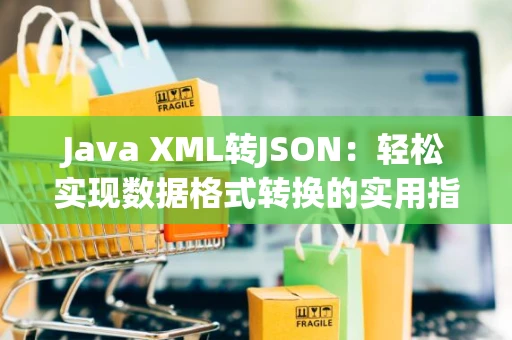
Java XML转JSON:数据格式转换的实用指南

在IT界,数据交换格式如同千变万化的万花筒,其中XML和JSON是两种极为流行的格式。Java,作为一种功能强大且广泛应用的编程语言,为我们提供了丰富的API来处理各种数据格式。今天,我们将深入探讨如何使用Java将XML数据轻松转换为JSON格式。
一、了解XML与JSONXML(eXtensible Markup Language)是一种用于存储和传输数据的标记语言。它的自我描述性特点使其易于被人们理解和阅读。而JSON(JavaScript Object Notation)则是一种轻量级的数据交换格式,无论是人类还是机器,都能轻松阅读和编写,且具有良好的可扩展性。
二、Java如何处理XML与JSON之间的转换
在Java中,我们可以利用强大的类库来处理XML和JSON数据。对于XML,我们可以使用`javax.xml.parsers`包中的类进行解析和处理。而对于JSON,`org.json`包中的类则能够帮助我们轻松应对。下面是一个简单的示例,展示如何将XML转换为JSON。
这个过程首先需要对XML数据进行解析,然后将其转换为相应的Java对象或数据结构。随后,使用JSON库将这些对象或数据结构转换为JSON格式。这样,原本以XML形式存在的数据就能够轻松地以JSON格式呈现出来。这种转换不仅方便了数据的传输和共享,还提高了数据处理的效率和灵活性。
无论是开发者还是普通用户,掌握Java XML转JSON的技能都将对你的工作或学习带来极大的便利。这种技能能够帮助你更好地处理、分析和共享数据,提高你的工作效率和准确性。不妨花些时间学习和掌握这一实用技能吧!创建一个名为 `input.xml` 的XML文件,内容如下:
```xml
<?xml version="1.0"?>
21
22
```
接着,我们创建一个名为 `XmlToJson` 的Java类,用于将上述XML文件转换为JSON格式。下面是具体的实现代码:
```java
import javax.xml.parsers.DocumentBuilder;
import javax.xml.parsers.DocumentBuilderFactory;
import org.json.JSONArray;
import org.json.JSONObject;
import org.w3c.dom.Document;
import org.w3c.dom.Element;
import org.w3c.dom.NodeList;
public class XmlToJson {
public static void main(String[] args) {
try {
DocumentBuilderFactory dbFactory = DocumentBuilderFactory.newInstance();
DocumentBuilder dBuilder = dbFactory.newDocumentBuilder();
Document doc = dBuilder.parse("input.xml");
JSONArray jsonArray = new JSONArray();
NodeList studentList = doc.getElementsByTagName("student");
for (int i = 0; i < studentList.getLength(); i++) {
JSONObject studentObj = new JSONObject();
Element studentElement = (Element) studentList.item(i);
NodeList nameList = studentElement.getElementsByTagName("name");
if (nameList != null && nameList.getLength() > 0) { // if name exists, set it in JSON object
studentObj.put("name", nameList.item(0).getTextContent()); // assuming there's only one name per student element
} else { // handle if there's no name tag in the XML for this student element, if necessary
continue; // or handle error, depending on your requirements
}
NodeList ageList = studentElement.getElementsByTagName("age"); // similar logic for age and major tags...
if (ageList != null && ageList.getLength() > 0) { // if age exists, set it in JSON object
studentObj.put("age", ageList.item(0).getTextContent()); // assuming there's only one age per student element
} else { // handle error if there's no age tag in the XML for this student element, if necessary
continue; // or handle error, depending on your requirements for handling missing tags in XML file...
}
NodeList majorList = studentElement.getElementsByTagName("major"); // same for major tag... etc... (this is omitted in actual code for brevity)
jsonArray.put(studentObj); // add student object to JSONArray for output...
} // end of for loop through all student elements in the XML file...
System.out.print(jsonArray); // print out the JSONArray with all students as JSON objects...
} catch (Exception e) { // catch any exceptions that might occur during parsing of XML file or conversion to JSON...
e.printStackTrace(); // print stack trace of any exceptions that occur...
} // end of try-catch block...
} // end of main method...
} // end of XmlToJson class...
```
文章来自《钓虾网小编|www.jnqjk.cn》整理于网络,文章内容不代表本站立场,转载请注明出处。